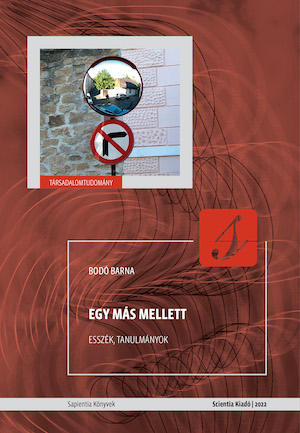EMBER AZ ERŐTEREKBEN. TORÓ TIBOR (1931–2010)
Man in the force fields. Tibor Toró (1931–2010)
Author(s): Barna Bodó
Subject(s): Essay|Book Review |Scientific Life
Published by: Scientia Kiadó
Keywords: Tibor Toró; Hungarian community in Transylvania; János Bolyai; nuclear physics; particle physics;
Summary/Abstract: For the Hungarian community in Transylvania, Tibor Toró was synonymouswith the scientist. From Szeklerland, he came to the university in Timişoaraand graduated from the then recently established pedagogical institute. Aftergraduation, he was a teacher at the institute, which later became a university.Talented graduates with good results were hired regardless of nationality. In aninterview, he confessed: “In Timişoara, I was attracted by the problem of the atom.I realized that the secret of the stars is also hidden in nuclear physics and particlephysics.” He chose atomic physics at a university little known at the time. Torówalked his path alone, without a personal tutor, and reached the highest peaks ofphysics. His book on the neutrino (1969) in Romanian is of historical importancein physics: it describes a completely new fi eld of science at a time when synthesispapers did not exist. He was an exceptional teacher. Professor Toró pushed hisstudents forward: he gave impulses, drew attention to new interpretations, urgedyoung people to read. Tibor Toró was interested in all fi elds of culture. He had ahuge collection of Madách’s masterpiece, The Tragedy of Man: his collection wasclose to fi fty volumes in about 20 languages. Toró presents in a study dedicatedto Madách a historical prediction of his: Madách correctly intuited how thesun and other stars can be replaced as sources of energy. In other studies, Toródemonstrates that the poet Attila József, beyond being an original and extremelytalented poet, was a deep thinker. The poet correctly intuited the problem ofsymmetry and the violation of symmetry. In his essays, Toró demonstrates hisinterest in philosophy and interdisciplinarity. From the 1990s, his attentionturned primarily to János Bolyai. As a Bolyai researcher, he did everything forBolyai to have commemorative signs in Timişoara (commemorative plaque,statue, memorial room). It is the moral duty of the people of Timişoara today andtomorrow to keep Tibor Toró’s memory alive and evoke him with commemorative signs.
Book: EGY MÁS MELLETT
- Page Range: 213-236
- Page Count: 24
- Publication Year: 2023
- Language: Hungarian
- Content File-PDF

